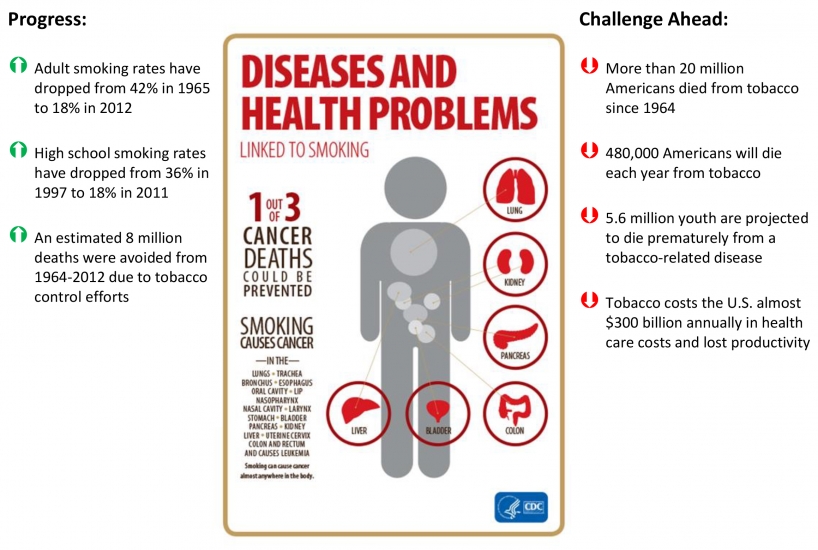Smoking-Related Cancer Deaths by State, 2020
Tobacco use causes about one-third of cancer deaths in the nation overall, but the burden varies by state.
New Findings:
|
Key Findings:
|
“For the U.S., the epidemic of smoking-caused disease in the 20th century ranks among the greatest public health catastrophes of the century, while the decline of smoking consequent to tobacco control is surely one of the public health’s greatest successes.”

The Health Consequences of Smoking – 50 Years of Progress: A Report of the Surgeon General calls for an integrated national tobacco control strategy of expanded implementation of tobacco control measures and new “end game” strategies to meet the vision of a society free of tobacco-related death and disease. The report provides the scientific foundation for critical tobacco control interventions.
Additionally, the report concludes that tobacco product regulation has the potential to reduce death and disease from tobacco use, including through reductions in the addictiveness and harmfulness of tobacco products and the prevention of false or misleading claims by the tobacco industry about the harmfulness of their products. The Surgeon General’s report recommends interventions and strategies must be implemented fully, forcefully, and sustainably in order to end the tobacco epidemic in the U.S.
The American Cancer Society Cancer Action Network supports a comprehensive approach to addressing tobacco use and exposure to secondhand smoke in the United States. Our advocacy strategy includes:
Each component works in conjunction with the others and all are necessary to tackle the tobacco epidemic in this country effectively. ACS CAN works in partnership with federal, state, and local policymakers across the country to ensure that tobacco use is addressed comprehensively in each community